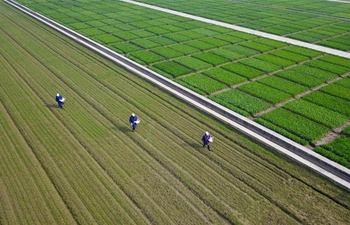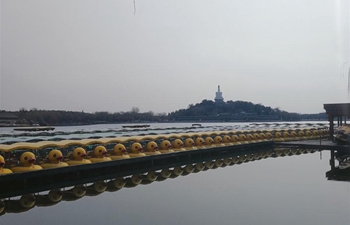LONDON, Feb. 26 (Xinhua) -- A protection zone for seabirds is to be extended by 13,000 hectares in the Isles of Scilly, one of the remotest parts of England, Natural England announced Tuesday.
According to the organization, the Scillies, an archipelago of over 200 low-lying granite islands and rocks situated 45 kilometers off the coast of Land's End in Cornwall, are home to a greater diversity of breeding seabirds than anywhere else in England.
The existing protection supports over 8,000 pairs of 13 different seabird species, including the European storm petrel and lesser black-backed gull, and is one of only two places in England where Manx shearwaters breed.
Natural England has outlined plans to extend the protection area to help maintain healthy and productive seabird breeding colonies for generations to come.
The agency said the extended boundary recognises the importance of additional species for the first time, including the European shag and great black-backed gull, and includes not only seabird nesting sites but also nearby sea areas used for feeding, resting, preening and other social interactions.
Environment Minister Therese Coffey said: "Our coastline is home to some of the most magnificent wildlife in the world and we are proud to be a world leader in protecting our marine environment.
"These new protections will provide thousands of birds on the Isles of Scilly with a safe haven for foraging and feeding, safeguarding precious marine habitats for future generations."
Natural England's Interim Chief Executive Marian Spain said: "Extending the Isles of Scilly Special Protection Area would bring huge benefits for some of our most important seabird colonies."
There are already 47 designated Special Protection Areas in waters around English waters designated to protect populations of rare and vulnerable seabirds from human activity while minimizing disturbance to birds' open water feeding areas.
"As part of the government's commitment to becoming a world-leader in marine protection, it has now protected 36 percent of English waters through protected areas, and we have recently called for a third of the world's oceans to be protected as Marine Protection Areas by 2030," said a spokesperson for the Department of Environment, Food and Rural Affairs (Defra).













